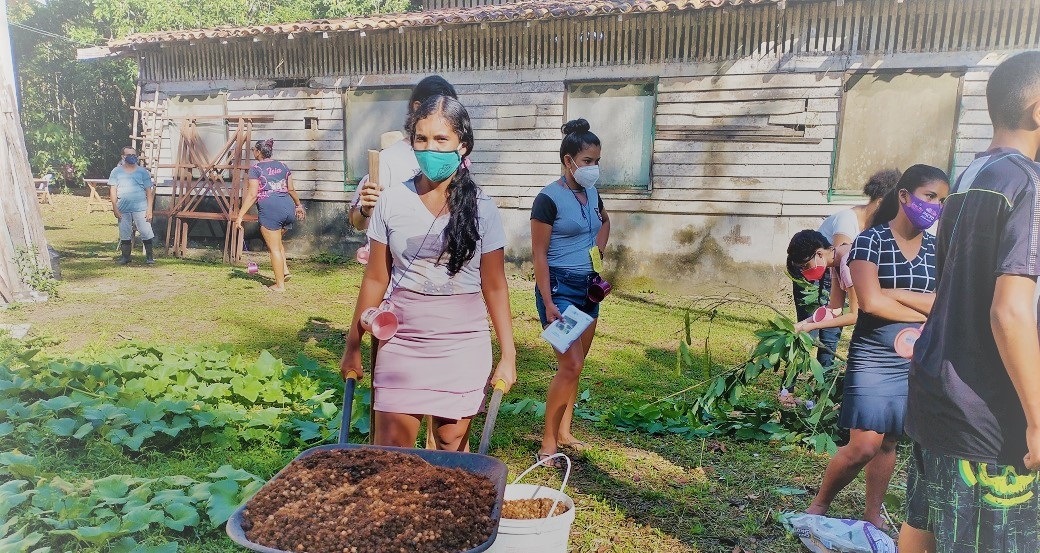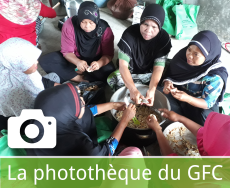First Impressions from the Preparatory Meetings for Rio+20
Returning from the UN headquarters in New York, after attending the UN Conference on Sustainable Development, Rio+20, informal- informal consultations from 17-23 March followed by the 3rd intersessional preparatory meetings from 26-27 March.
The meetings, which focus on sustainable development and serve as the preparatory phase before to the Rio+20 Summit in Rio de Janerio in June 2012, place special attention on ‘the green economy’ and poverty eradication, and the institutional framework for sustainable development. This summit dates back to 1992 when the first ‘Earth Summit’ was carried out also in Rio de Janeiro therefore, acquiring the name ‘Rio’s Summit’. Twenty years later, the wolrd has obviously changed and negotiations are happening in completely new political, economic and social cirsumstances than those of 1992. So, I find myself involved in this ongoing process which to a new comer is evidently harder to ‘chew’… In any case, there is no need for being a ‘veteran’ in the process to quickly grasp the main dispute going on currently: turning the environment into another marketable product so that the ‘usual suspects’ can benefit from it.
The idea of a ‘green economy’ may sound to many as an environmentally friendly approach since they have sold us the idea that all that is ‘green’ is ecological. However, there is a huge lack of awareness regarding this term, and what is more worrying, the future of our environment and future generations rely on it; up until now, there is no clear definition on what the green economy is, moreover representatives to the negotiations have expressed their concern on reaching a better understanding of the social, environmental and economic implications and impacts of the ‘green economy’. Nevertheless, governments continue to negotiate based on it. In fact, there is a whole section among the many texts relevant to these negotiations.
According to policy-makers, the ‘green economy’ will provide win-win situations: the “green economy will bring green jobs”, “the green economy will facilitate trade”, “the green economy will help us erradicate poverty”, all while using resources in a sustainable way… but is this the same reality we see in the field?
Having a ‘green economy’ entails the commodification of natural resources, incorporating forests and other ecosystems into markets, and markets often entail ownership. Thus, by turning biodiversity and the environment into marketable ‘goods’ and derived ‘services’, paying for an environmental ‘service’ (PES) will only happen by putting a price to life; it will then constitute a market based mechanism which is supposed to operate under the premise of equity. Examples of such mechanisms are Carbon Trade (e.g. REDD+), Certification, Trade in Genetic resources, and Ecotourism. But what if there is no equity?
But just to give the reader an idea, experience has demonstrated that in developing countries – where most of the resources are kept- there is rarely any equity; the vulnerable often have no rights over their lands, work is underpaid, governments are corrupted, women are often in greater disadvantage, etc etc. In many cases, land grabbing issues have been raised where indigenous peoples and/or local communities have been evicted of their ancestral lands because they lack ownership over those lands, and corporations, often in complicity with governments, appropriate those lands in order to carry out their profitable business. So, the resources that for many generations were accessed providing the livelihoods for different communities and peoples are suddenly taken away from them and left without water, food, or wood. People often find no other choice but to migrate to the cities and swell the ranks of people living in poverty.
Furthermore, carbon trade schemes represent a huge threat to biodiversity as they do not deal with the root causes of climate change and may promote the destruction of primary forests for conversion into tree monocultures, as it has been the case with the expansion of soy. Soil degradation is also one of the consequences of these monocultures which have had significant health impacts in neighboring communities; projects for Reducing Emissions from Deforestation and Forest Degradation (REDD+), for instance, provides incentives to those who have incurred in massive deforestation, but lacks any incentive to those who have actually preserved their forests, so why compensate those companies/governments who have incurred in large scale deforestation while ignoring local people’s conservation efforts? Clearly, something there must be wrong…
Thus, this Rio+20 process is paramount not just for our generation but for the rest to come. The Rio principles convened back in 1992 could be at risk as the world’s powers find themselves in the midst of a critical financial crisis; there has been some recognition that achieving sustainable development requires changes in production and consumption patterns but instead, some of the powerful member states not willing to leave their ‘business as usual’ have put at risk people’s rights and equity by proposing to delete the language related to a human rights approach to sustainable development, for example ‘deleting references to vulnerable peoples in relation to the implementation of rights, such as access to safe, sufficient and nutritious food, women and youth access to land, regulating finance to address volatility and language calling for concrete commitments and targets’ (http://iboninternational.org/page/whats_new/138).
On the other hand, between the 15th and the 23rd of June in Rio de Janeiro, civil society organizations, Indigenous Peoples Organizations, NGOs, social movements, women’s groups, and more, will be attending the People’s Summit for Social and Environmental Justice in Defence of the Commons, a parallel event aimed at proposing a new way of living on the planet, in solidarity against the commodification of nature and in defense of the commons (more info http://rio20.net/en/). Hopefully, the official negotiations will listen to the voice of millions of people around the world concerned about the lack of appropriate policies towards sound environmental protection while ensuring people’s rights, in a world that has changed substantially since 1992.
Hopefully those involved in steering the wheels of our future realize that the system that has prevailed for many years in the world didn’t work, that we need a profound change, that environmental matters should not by dealt with by the World Trade Oorganization, that natural resources and Mother Earth are not just another ‘good’, that the 99% of the people around the world disagree with the concentration of wealth in the hands of a few and that we will all unite to oppose any further threats to our air, our water, our food, our children…
Isis Alvarez
Global Forest Coalition
isis.alvarez@globalforestcoalition.org






